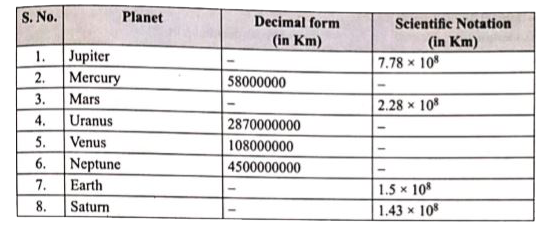Collection of one or more outcomes of an experiment is calledSolution in Tamil
Event
Outcome
Sample point
None of the above
The correct Answer is:A
Step by step video, text & image solution for Collection of one or more outcomes of an experiment is called by Maths experts to help you in doubts & scoring excellent marks in Class 9 exams.
Topper's Solved these Questions
- BOOK - FULL MARKSCHAPTER - PROBABILITYEXERCISE - Additional Question Solved10videos
PROBABILITY
- BOOK - FULL MARKSCHAPTER - PROBABILITYEXERCISE - Assignment (Choose the correct answer)5videos
PROBABILITY
- BOOK - FULL MARKSCHAPTER - PROBABILITYEXERCISE - EXERCISE 9.25videos
PROBABILITY
- BOOK - FULL MARKSCHAPTER - MENSURATION EXERCISE - Assignment (II. Answer the following questions)8videos
MENSURATION
- BOOK - FULL MARKSCHAPTER - REAL NUMBERSEXERCISE - Text Book Activity (Activity 3:)1videos
REAL NUMBERS
Similar Questions
Which of the following cannot be taken as probability of an event ?
03:22View SolutionIf P is the probability of an event A, then P satisfies ………………………
01:44View SolutionA company manufactures 10000 Laptops in 6 months. Out of which 25 of them are found to be defective. When you choose one Laptop from the manufactured, what is the probability that selected Laptop is a good one .
01:51View SolutionFind the area of a quadrilateral ABCD where AB = 7 cm, DA = 15 cm, AC = 9 cm, BC = 6 cm and CD = 12 cm.
02:24View SolutionThe following list shows the mean distance of the plants of the solar system from the Sun. Complete the following table. Then arrange in order of magnitude starting with the distance of the planet closest to the Sun.
 01:11View Solution
01:11View SolutionElementary Event
01:09View SolutionRead the following passage and answer the question
The results of a random experiment is known as an outcome. The set of all possible outcomes of a random experiment is called the sample space. It is denoted by S.
The outcomes satisfying particular condition are called favourable outcomes.
A set of favourable outcomes is called an event. Event is a subset of the sample space.
There are different types of events.
(a) An event consisting of only one sample point is called an ememtntary event.
(b) An event which does not contain any sample point is called an impossible event.
How many outcomes are there in a random experiment of tossing two coins simultaneously? What are they ?03:12View SolutionRead the following passage and answer the question
The results of a random experiment is known as an outcome. The set of all possible outcomes of a random experiment is called the sample space. It is denoted by S.
The outcomes satisfying particular condition are called favourable outcomes.
A set of favourable outcomes is called an event. Event is a subset of the sample space.
There are different types of events.
(a) An event consisting of only one sample point is called an ememtntary event.
(b) An event which does not contain any sample point is called an impossible event.
Write two elementary events of the above experiments.05:59View SolutionRead the following passage and answer the question
The results of a random experiment is known as an outcome. The set of all possible outcomes of a random experiment is called the sample space. It is denoted by S.
The outcomes satisfying particular condition are called favourable outcomes.
A set of favourable outcomes is called an event. Event is a subset of the sample space.
There are different types of events.
(a) An event consisting of only one sample point is called an ememtntary event.
(b) An event which does not contain any sample point is called an impossible event.
Write an impossible event in a random experiment of rolling a die.04:56View SolutionSet of all possible outcomes of an experiment is called its
01:33View Solutionयादृच्छिक प्रयोग में सभी सम्भव परिणामो का समुच्चय ……….. कहलाता है।
02:59View SolutionCollection of one or more outcomes of an experiment is called
02:27View SolutionGive examples of 5 experiments that have equally likely outcomes and five more examples that do not have equally likely outcomes
07:37View SolutionGive examples of 5 experiments that have equally likely outcomes and five more examples that do not have equally likely outcomes
01:33View SolutionThe experiment in which all possible outcomes are known but exact outcome can't be predicted is called
01:18View SolutionThe each outcome of a Random experiment is called
01:50View Solution

